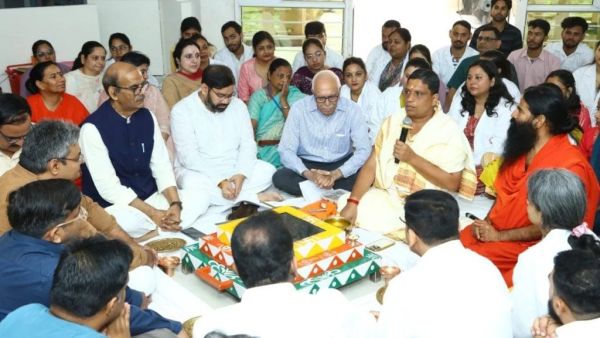
New Delhi: Marking a milestone in medical innovation, Patanjali Yogpeeth inaugurated the Patanjali Emergency and Critical Care Hospital with Vedic rituals of Yagna-Agnihotra and chants in the presence of Swami Ramdev Maharaj and Acharya Balkrishna Maharaj. Swami Ramdev described the launch as the beginning of “a new chapter in medical science,” calling it a “medical democratic system” designed solely for the welfare of patients.
He announced that the Haridwar facility is only the foundation of a much larger project. “An even bigger hospital—surpassing AIIMS, Apollo, and Medanta—will soon come up in Delhi NCR,” he said, adding that unlike corporate hospitals, the Patanjali system will focus on healing rather than profit. “Our goal is to deliver health through an integrative medicine system,” he added.

Swami Ramdev explained that Patanjali’s model uses modern medicine only when essential, emphasizing Ayurveda, naturopathy, and yoga as primary approaches. The hospital offers surgeries in multiple specialties including brain, heart, and spine procedures, while plans are underway to include cancer surgeries in the future. It also provides MRI, CT scan, ultrasound, and pathology services, adhering to global standards. “We only perform surgeries when absolutely necessary—patients will not face arbitrary package burdens,” he stated, crediting Acharya Balkrishna for shaping this vision.
Acharya Balkrishna said that 80% of treatment can be achieved through traditional medicine combined with 20% modern medical science. “Within four to five years, this integrative approach can transform global healthcare,” he asserted. He emphasized that Patanjali doctors have no commercial targets—only one mission: to restore health.
Senior doctors and specialists from multiple departments—including emergency, ICU, neurology, cardiology, orthopedics, radiology, and pathology—attended the inauguration, along with unit heads, principals, and members of Patanjali’s monastic and medical teams.